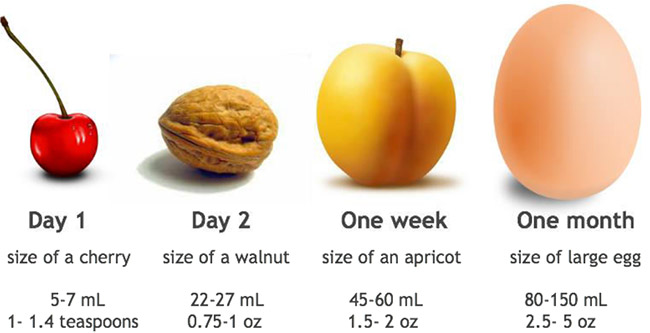Breastfeeding Guide
Breastfeeding is baby’s first introduction to mother’s love. With a little time, patience, perseverance and support from family & society, mothers can breastfeed successfully.
Breastfeeding is a source of bonding and security for your baby. Breastmilk is the perfect food to help your baby’s body and mind grow by giving all the necessary fluids and nutrients which baby needs (except Vitamin D which can be obtained from regular sun exposure or Vitamin D supplements). Nothing else is required for baby except breastmilk.
Healthy fullterm babies have a natural instinct and ability to find their mother’s breast to latch onto and suckle to feed.
When must I breastfeed my baby?
At birth: hold your baby skin-to-skin on your chest straight after birth (within the first hour). This will calm your baby, stabilize his breathing, keep him warm and help him to latch onto your breast for his first breastfeed.
After a caesarian section or a difficult labour: as soon as you are awake and able to hold your baby, ask for him to be placed skin-to-skin on your chest. This provides the comfort and security after birth to be able to start his first breastfeed. Ask for help if you find it difficult to breastfeed. If your baby is in neonatal intensive care unit (NICU), express your breastmilk as soon as possible after birth (within 6 hours).
The first 24 hours after birth: babies are born with extra fat and fluids which will help them through their first few days. Babies are active alert for the first few hours after birth when they have their first breastfeed. Thereafter they sleep for most of their first day of life, so they feed very little. This is normal though you can try to wake him up by:
- Undressing him to his diaper
- Holding him skin-to-skin
- Offering your breast frequently
After the first day: your baby will start to wake up more often so breastfeed whenever he needs, whenever he shows feeding signals like fist to mouth, opening mouth, tongue out. Feed at least 10-12 times in 24 hours. Babies feed in clusters of 3-5 suckles per breastfeed with breaks inbetween suckling. Thereafter they have one long sleep of 1-3 hours.
How big is a newborn’s stomach?

How do I know if my baby is getting enough milk?
- You hear, see and feel your baby suckling & swallowing.
- Your nipple should not be sore when baby latches properly.Your breast feels softer after a feed.
- Baby should feed 10-12 times in 24 hours. Feed baby whenever he shows feeding cues.
- Fat % increases the longer you feed at a breast so complete each feed at one breast so baby gets the high fat content milk.
- At the end of 1st week, baby should have 5-6 wet diapers in 24 hours. After the 2nd week wet diapers increase to 8-12.
- Baby usually has a few stools per day
- Birth weight normally drops within the first few days but should not be more than 10% so feed, feed, feed whenever baby shows feeding cues.
- Baby’s weight gain:
- 0-4 months 155-241 gms/week
- 4-6 months 92-126 gms/week
- 6-12 months 50-80 gms/week
- Baby should be alert, healthy, growing steadily after the first 2 weeks.
Golden Tips:
- The more you breastfeed the more milk you produce.
- It doesn’t matter how big or small your breasts are, you can still breastfeed.
- Learn to hand express breastmilk so you can hand massage your breasts before feeding to help with milk let down.
- A proper deep latch prevents sore nipples, allows good milk transfer so baby feeds well, and your milk production is stimulated.
- Sleep when baby sleeps. Keep baby close, feed frequently and latch properly.
- Exclusive breastfeeding (no water, herbal tea, honey, dates) for the first 6 months of life provides ALL nutrients a baby needs. Breastmilk is a complete food for baby. At 6 months slowly start introducing appropriate family food to your baby. (WHO/UNICEF recommendations).
- A breastfed baby has less chance of allergies, ear infections, diabetes and obesity.
- Breastfeeding is good for mother as well. It helps to:
- Contract uterus back to normal size
- Prevent obesity
- Helps body lose pregnancy weight
- Prevents breast & ovarian cancer and weak bones
- Relax and enjoy your breastfeeding partnership with your baby.
References: World Health Organisation, Baby Friendly Hospital Initiative, United International Children’s Fund
LACTATION CLINIC
For any breastfeeding queries make an appointment with our Lactation Consultant. Call or email us at contactus@nmc.ae
